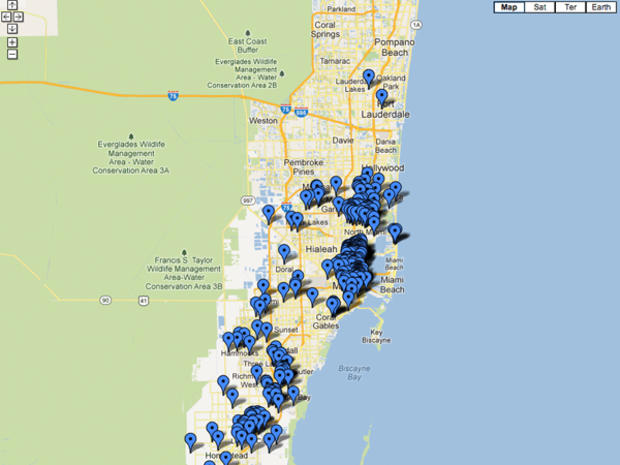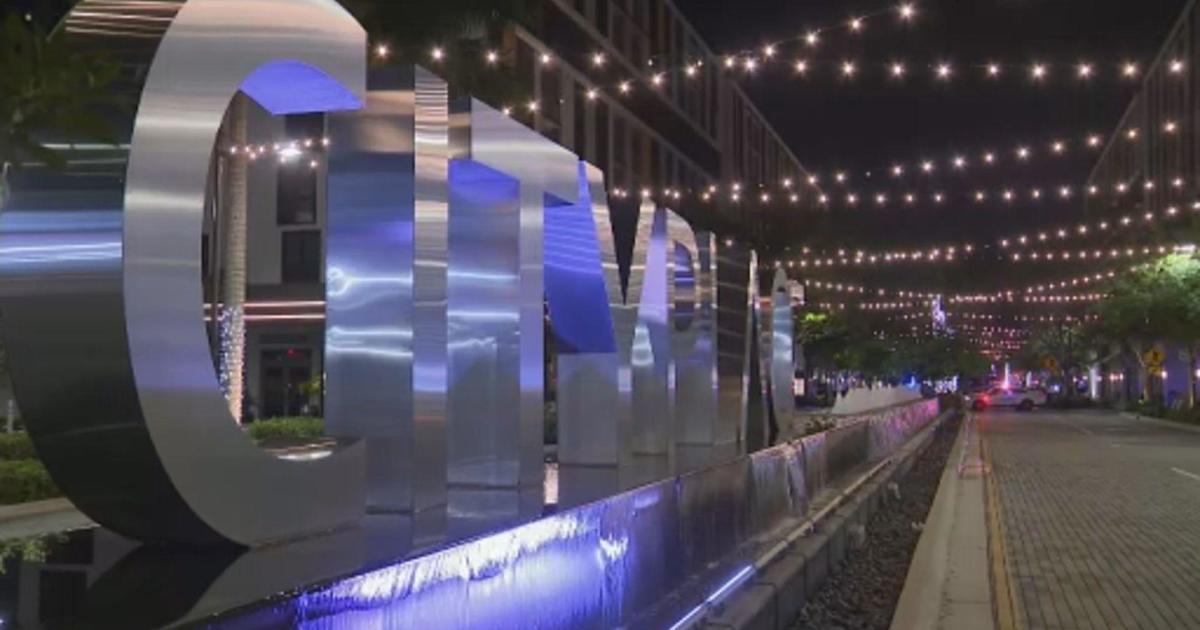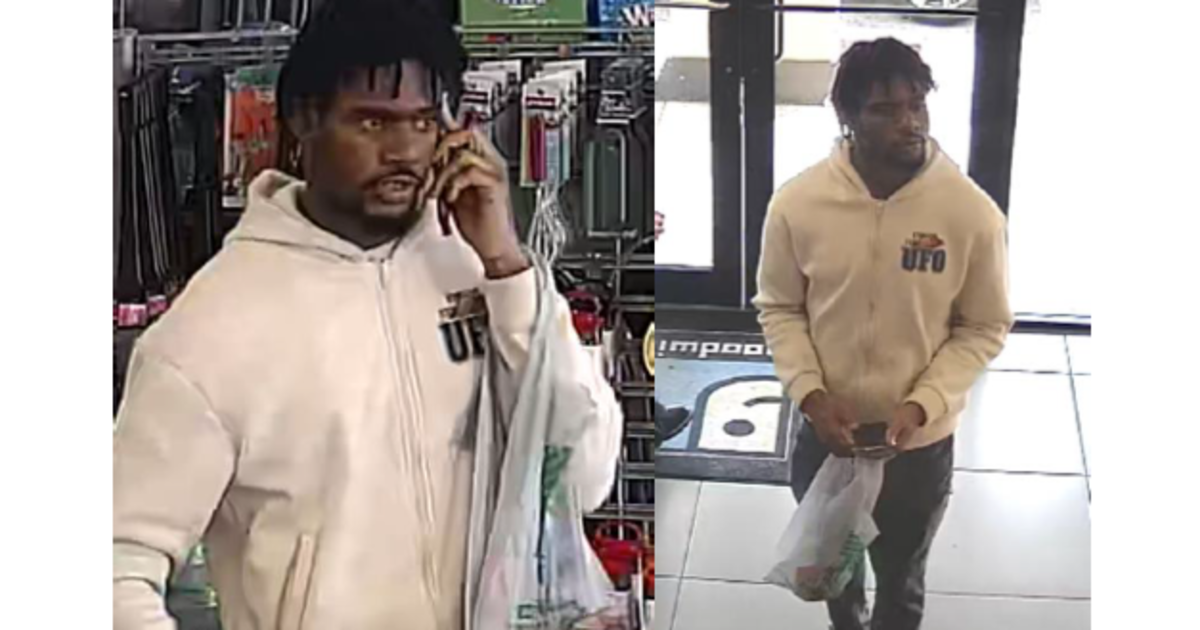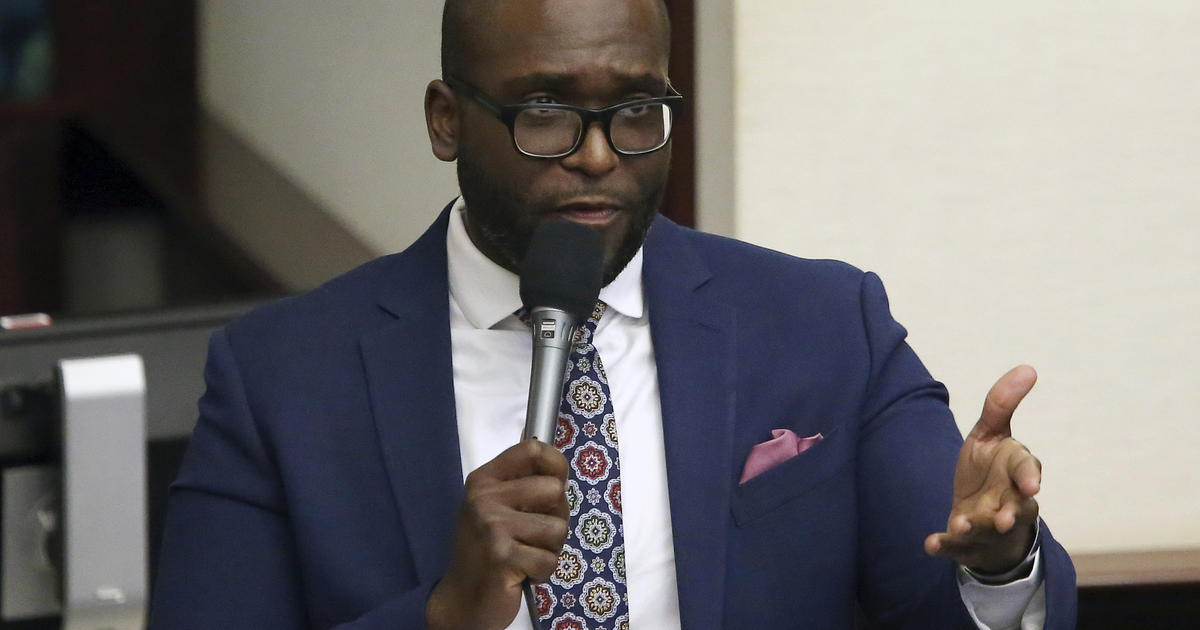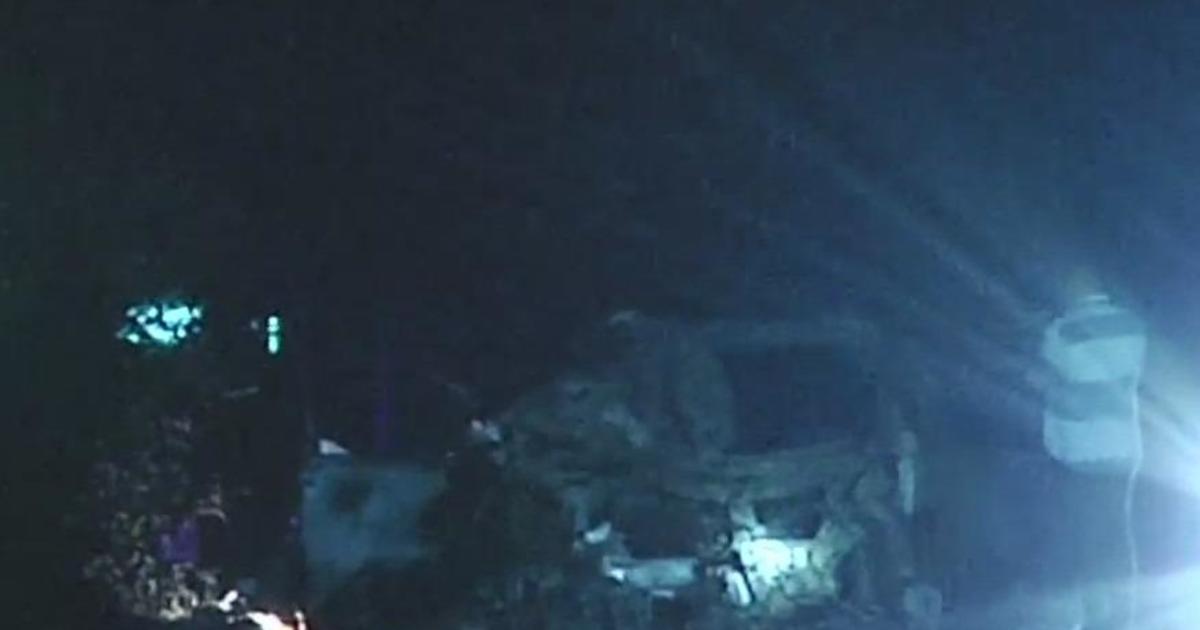CBS4 Investigates: Miami-Dade Gun Violence
MIAMI (CBS4) - In recent days there have been at least eight people shot in the City of Miami, including three teenagers. Two of the teens were killed.
The spate of shootings has now become so common, most don't even make the evening news or the morning paper.
But the numbers are staggering.
In 2012 more than 500 people were shot in Miami Dade County, according to a review of police records compiled by CBS4 News.
Police officials maintain the number of shootings and murders has remained fairly constant in recent years. They do acknowledge, however, that solving the cases has grown more difficult.
Last year the county's two largest departments - Miami Dade Police Department and the City of Miami Police Department - solved fewer than half its cases.
The homicide clearance rate for Miami Dade County was 42 percent last Fall, according to homicide investigators. In other words nearly six out of ten killings would go unsolved.
For the Miami Police Department the homicide clearance rate was 50 percent.
The national average is between 60 and 65 percent, according to experts.
And the clearance rate for shootings – in which the victim survives – in the City of Miami came in at 43 percent.
On a recent afternoon, Sgt. Eunice Cooper, the acting commander of Miami's homicide unit since May, was standing in front of her "murder board" – two large white panels mounted on the wall listing each of the 72 homicides in the city last year. Next to each victim's name is either "Open" or "CBA." CBA stands for Closed By Arrest.
Thirty six of the homicides were marked "Open."
Asked how she would rate her unit's performance, she said: "I wasn't impressed."
She told CBS4 investigator Jim DeFede she expects some of the murders in November and December to be solved. Police have good leads, she noted, in at least four of the cases. But overall, she admitted, the cases are harder to close today.
Witnesses are afraid to speak. Many of the shootings are the work of gangs and residents in the neighborhood are unwilling to point a finger at them.
"I don't think it's that the crimes are harder to solve, I think the people have changed and the times are different," said Cooper, who has been in homicide for 25 years. "When I first came to homicide we could go to Granma and sit down and talk to Granma and tell Granma here's what we got and this involves your Gran. Or we could go to mom and they would actually bring them in and sit down and allow you to talk to them."
Several Friday's ago, two of Cooper's investigators – Sgt. Carlos Castellanos and Detective Frank Perez – showed up at the Ryder Trauma Center before the shooting victim even arrived. They had been cruising the area around 3 am, heard the call of a person shot, and went to the hospital. While other detectives went to the scene of the shooting, Castellanos and Perez went to the hospital so they could speak to the shooting victim as soon as possible.
"The sooner we get on the case, the sooner we can start the wheels rolling in terms of what needs to get done," said Castellanos.
Perez agreed it is difficult getting both witnesses and even victims to talk.
"That thought of snitches end up in either stitches or ditches is very large in this community - and the fear factor of what might happen to them has a lot to do with it," Perez explained.
Added Detective Daniel Valladaros: "I don't know where but somewhere in society it has gotten to the place where it is almost wrong to do the right thing."
Asked if he ever arrives on a scene and think to himself there is no way this case is ever going to be solved, Castellanos said: "No way, no way. You can't have that approach in this assignment. You have to take on the approach: Is it challenging? Yes. Is it difficult? Yes. Do you have a lot to work with? Maybe not. Well if it were easy anybody could do it. So this isn't easy. Never has been and never will be."
And even if the case isn't solved right away it stays with you, Castellanos said.
"That case is in your mind, that family is in your mind," he added.
One thing that has changed with time is the attitude of those holding the guns. Cooper said years of witnessing violence has bred contempt for life and acceptance of death.
"I've had young people come in and tell me I've had two or three friends killed, I'm not going to live until 21," Cooper said. "I don't expect to live until I'm 21. And that's just how they feel. That's just how it is. It's almost as if they are immune to the violence."
CBS4 News plotted nearly every shooting in Miami Dade County for 2012; the scar that cuts through the county is evident from Overtown to Miami Gardens.
In the midst of this carnage lives Robert Malone. Every day Malone picks up his 12-year-old nephew from school to make sure he arrives home safely.
"I pick him up from school by 3:30, we come in and he's in the house," Malone said. "There is no playing around like I did. I played basketball and football and walked home and played with my friends."
But Malone said that sense of nostalgia isn't worth the risk.
"We see the violence, we see the senseless violence," Malone said. "Not only do I fear for him, but I fear for my entire family. I fear for the families that are in this community,"
President of the Hadley Park Homeowners Association, Malone lives with his mother, sister and nephew behind a series of gates, locks and bars.
"We all sort of govern ourselves by certain rules," Malone said. "My sister goes out at night I don't go to sleep until she's in the house."
At night when his mother takes the Metro Rail home from work, he picks her up at the station, even though it is only a few blocks away.
"She's not going to walk home - that's not going to happen because anything can happen," he said.
There is a realization that even though neither he nor any member of his family has been shot, it doesn't mean they haven't been affected by the violence since it changes the way they live.
"That's right," Malone acknowledged, "and again we have some great families in this community, who care about the community."
Malone said the one thing he is tired of is the posturing of politicians.
"If some young kid is killed then everyone wants to get together and they want to have a press conference and say no to violence," Malone said. "Or they want to collect guns off the street."
Malone said it's a nice effort but the guns are everywhere.
"These kids are resourceful," he said. "You can get a gun real quickly in this community, real quickly. If you really want one, you can get one - and that's shameful, that's shameful."
Better to find long term solutions.
"We are reacting to the crime rather than trying to be proactive and address issues of poverty, issues of poor education, issues of jobs and job training," he said. "I want kids to be able to grow up in this neighborhood and not fear for their lives."
